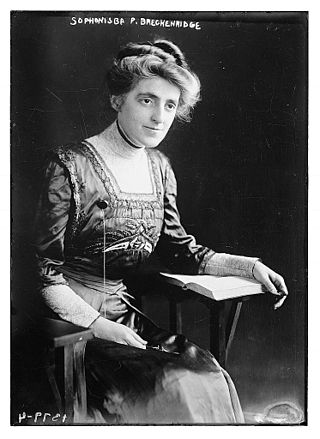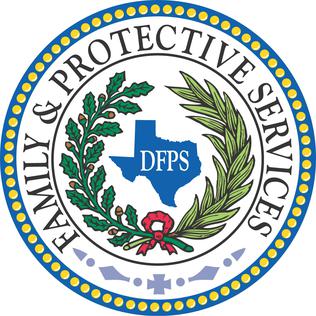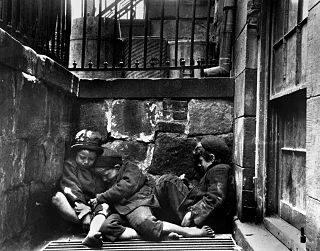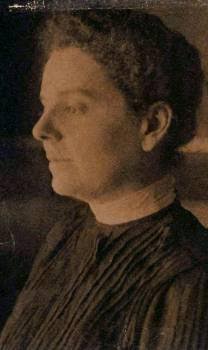
Laura Jane Addams was an American settlement activist, reformer, social worker, sociologist, public administrator, philosopher, and author. She was a leader in the history of social work and Women's suffrage. In 1889, Addams co-founded Hull House, one of America's most famous settlement houses, in Chicago, Illinois, providing extensive social services to poor, largely immigrant families. Philosophically a "radical pragmatist", she was arguably the first woman public philosopher in the United States. In the Progressive Era, when even presidents such as Theodore Roosevelt and Woodrow Wilson identified themselves as reformers and might be seen as social activists, Addams was one of the most prominent reformers.

Julia Clifford Lathrop was an American social reformer in the area of education, social policy, and children's welfare. As director of the United States Children's Bureau from 1912 to 1922, she was the first woman ever to head a United States federal bureau.
Court Appointed Special Advocates (CASA) is a national association in the United States that supports and promotes court-appointed advocates for abused or neglected children. CASA are volunteers from the community who complete training that has been provided by the state or local CASA office. They are appointed by a judge, and their role is to gather information and make recommendations in the best interest of the child, keeping the child's personal wishes in mind.
The United States Children's Bureau is a federal agency founded in 1912, organized under the United States Department of Health and Human Services' Administration for Children and Families. Today, the bureau's operations involve improving child abuse prevention, foster care, and adoption. Historically, its work was much broader, as shown by the 1912 act which created and funded it:
The said bureau shall investigate and report to [the Department of Commerce and Labor] upon all matters pertaining to the welfare of children and child life among all classes of our people, and shall especially investigate the questions of infant mortality, the birth-rate, orphanage, juvenile courts, desertion, dangerous occupations, accidents and diseases of children, employment, legislation affecting children in the several states and territories.

Sophonisba Preston Breckinridge was an American activist, Progressive Era social reformer, social scientist and innovator in higher education. She was the first woman to earn a Ph.D. in political science and economics then the J.D. at the University of Chicago, and she was the first woman to pass the Kentucky bar. In 1933, President Franklin D. Roosevelt sent her as a delegate to the 7th Pan-American Conference in Uruguay, making her the first woman to represent the U.S. government at an international conference. She led the process of creating the academic professional discipline and degree for social work. During her life she had relationships with Marion Talbot and Edith Abbott.
Child protection is the safeguarding of children from violence, exploitation, abuse, abandonment, and neglect. It involves identifying signs of potential harm. This includes responding to allegations or suspicions of abuse, providing support and services to protect children, and holding those who have harmed them accountable.

The New York Society for the Prevention of Cruelty to Children was founded in 1874. It is the world's first child protective agency. It is sometimes called the Gerry Society after one of its co-founders, Elbridge Thomas Gerry. It is commonly seen as having played a key role in the development of children's rights and child protective services in the English-speaking world. Today it offers support and advocacy for high-risk and abused children, parental skills classes, and professional training in the identification and reporting of child abuse and neglect.
In the United States, a mandated reporter is a person who is required by law to report to Child Protective Services (CPS) or Adult Protective Services if they know or suspect a child or vulnerable adult has been or is at risk of being abused or neglected or they may be subject to civil and criminal penalties for failing to report.
Child protective services (CPS) refers to government agencies in the United States that investigate allegations of child abuse or neglect, and if confirmed, intervene by providing services to the family through a safety plan, in-home monitoring, supervision, or if a safety plan is not feasible or in emergencies, removing the child from the custody of their parent or legal guardian.
The child-saving movement emerged in the United States during the nineteenth century and influenced the development of the juvenile justice system. Child savers stressed the value of redemption and prevention through early identification of deviance and intervention in the form of education and training.

The Texas Department of Family and Protective Services (DFPS) is responsible for investigating charges of abuse, neglect or exploitation of children, the elderly, and adults with disabilities. Prior to its creation in 2004, the agency had been called the Texas Department of Protective and Regulatory Services (DPRS).

Foster care is the term used for a system in which a minor who has been made a ward or a non-minor, typically aged 18–21, who volunteers for placement, is placed in a relative placement, a non-related extended family (NREFM) placement, a community family home, an institution, or a group home. Relative, NREFM, and community caregivers certified by the state are typically referred to as "foster parents," "kin caregivers," "resource parents," or other local terms. The placement of the child is usually arranged through state or county social services. The institution, group home, or caregiver is reimbursed for the expenses related to caring for the child. The state via the family court and child protection agency stand in loco parentis to the minor, making all legal decisions, while the caregiver is responsible for the day-to-day care of the minor. Even while their child is in Care, typically birth parents retain Education and Medical rights and the right to contact with their child unless parental rights are terminated by the Court.
The Institute for Juvenile Research (IJR) is a research, demonstration and training center housed in the Department of Psychiatry, College of Medicine, University of Illinois at Chicago. The institute has more than 40 faculty members and 65 professional staff members. IJR programs address pressing issues such as HIV risk, access to effective school services, the epidemiology of drug abuse, services for families in the child welfare system and the training of child mental health providers. The institute also offers child psychiatry clinical services and training programs in child and adolescent psychiatry, psychology and social work.

The Wisconsin Department of Children and Families (DCF) is an agency of the Wisconsin state government responsible for providing services to assist children and families and to oversee county offices handling those services. This includes child protective services, adoption and foster care services, and juvenile justice services. It also manages the licensing and regulation of facilities involved in the foster care and day care systems, performs background investigations of child care providers, and investigates incidents of potential child abuse or neglect. It administers the Wisconsin Works (W-2) program, the child care subsidy program, child support enforcement and paternity establishment services, and programs related to the federal Temporary Assistance to Needy Families (TANF) income support program.
A girl's court is a gender responsive approach for girls in the juvenile justice system that links young "at-risk" females to social service agencies, providing informal sessions on everything from body image, education and counseling with a team of adults to provide trust and support.

Louise DeKoven Bowen was an American philanthropist, civic leader, social reformer, and suffragist. She was born to a wealthy family and raised with a strong sense of noblesse oblige. She made substantial financial donations to numerous organizations, raised funds from her association with Chicago's elite families, and while not trained as a social worker, she served in the field as a competent and respected policy maker and administrator. She worked with the settlement movement at Hull House, court reform for youth via the Juvenile Protective Association, and numerous women's clubs and women's suffrage organizations. A primary passion of hers was the reform of dance halls in Chicago. At the end of her 94 years, she had provided care to the impoverished and disenfranchised through her extensive public service and activism, especially attending to "the welfare and betterment of women, children, and their families."
In many parts of the world, mandated reporters are people who have regular contact with vulnerable people such as children, disabled persons, and senior citizens, and are therefore legally required to ensure a report is made when abuse is observed or suspected. Specific details vary across jurisdictions—the abuse that must be reported may include neglect, or financial, physical, sexual, or other types of abuse. Mandated reporters may include paid or unpaid people who have assumed full or intermittent responsibility for the care of a child, dependent adult, or elder.

Mary Rozet Smith was a Chicago-born US philanthropist who was one of the trustees and benefactors of Hull House. She was the partner of activist Jane Addams for over thirty years. Smith provided the financing for the Hull House Music School and donated the school's organ as a memorial to her mother. She was active in several social betterment societies in Chicago at the turn of the 20th century.

Department of Children and Family Services (DCFS) is an agency of the government of Los Angeles County. DCFS's operations involve investigating child welfare and abuse allegations, foster care, and adoption.
Heartland Alliance is an anti-poverty organization based in Chicago, with a historical focus on serving American immigrant communities. Heartland Alliance devotes the bulk of its funding to initiatives that address poverty through health and housing, with further programs centered on jobs, justice, and international work. Heartland Alliance's 72 programs are run by constituent companies Heartland International, Heartland Alliance Health, Inc., Heartland Alliance Housing, Inc., and Heartland Alliance Human Care Services. Heartland Alliance also includes a Policy & Advocacy Team, Social Impact Research Center, National Initiatives, and the National Immigrant Justice Center. As a 501(c)(3), Heartland does not endorse candidates for political office.










